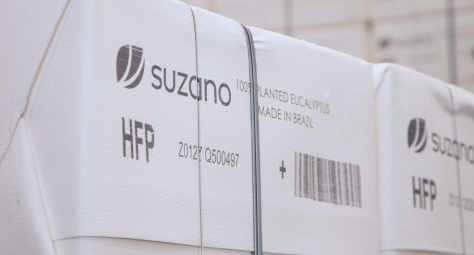sobre o que você deseja falar?


perguntas, sugestões ou problemas técnicos envolvendo a plataforma

informações sobre a empresa


Suzano plays a strategic and fundamental role in promoting human rights, integrating respect for human dignity and cultural guidelines into all its operations and initiatives. With a consolidated presence in more than 224 municipalities in 9 Brazilian states, we seek to boost economic development and promote a profound and sustainable social transformation that values people, communities, and local organizations, contributing to a regenerative economy.
Our strategic approach to social impact is based on creating strong partnerships and collaborative networks that respect the particularities of each territory. These alliances are carefully structured to stimulate long-term territorial development, leveraging the territories' main socio-environmental, economic, and cultural indicators. We invest in innovative and scalable solutions designed to contribute to:
Learn about our investment strategy in “Private social investment management”.
Through strategic social investments, Suzano seeks to benefit the regions where it operates, increasing shared value and promoting social inclusion in various forms. The company prioritizes respect for human rights at the heart of its agenda, ensuring that principles of transparency and accountability guide all actions and programs, and a firm commitment to collective well-being. Constant dialogue with stakeholders is essential to ensure that our initiatives meet the real needs of the population, respecting their autonomy and local cultures.
Suzano's programs reflect its concern for integral human development and the sustainability of people and organizations. They address crucial issues such as strengthening the local economy, including traditionally vulnerable groups and promoting fairer living conditions.
In this context, our social impact initiatives focused on generating income are linked to Suzano's programmatic lines of inclusive recycling, sustainable extraction, entrepreneurship, territorial supply networks, access to employment, and the value chain. Find out more at "Reducing poverty”.
The table below consolidates the following data:
| 2020 | 2021 | 2022⁶ | 2023⁶ | 2024⁶ | |||||||||||
|---|---|---|---|---|---|---|---|---|---|---|---|---|---|---|---|
| Number of participants³ | Number of people benefited⁴ | Total revenue generated⁵ | Number of participants³ | Number of people benefited⁴ | Total revenue generated⁵ | Number of participants³ | Number of people benefited⁴ | Total revenue generated⁵ | Number of participants³ | Number of people benefited⁴ | Total revenue generated⁵ | Number of participants³ | Number of people benefited⁴ | Total revenue generated⁵ | |
| número total | número total | R$ | número total | número total | R$ | número total | número total | R$ | número total | número total | R$ | número total | número total | R$ | |
|
Total⁵ |
4.296 |
24.467 |
48.695.194,76 |
4.825 |
30.736 |
93.016.679,85 |
14.100 |
47.237 |
79.306.566,37 |
49.212 |
114.522 |
85.998.729,00 |
45.456 |
158.663 |
121.882.970,00 |